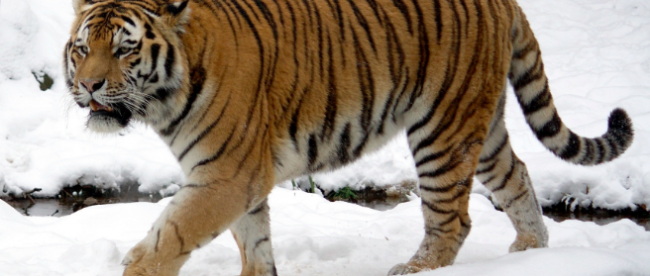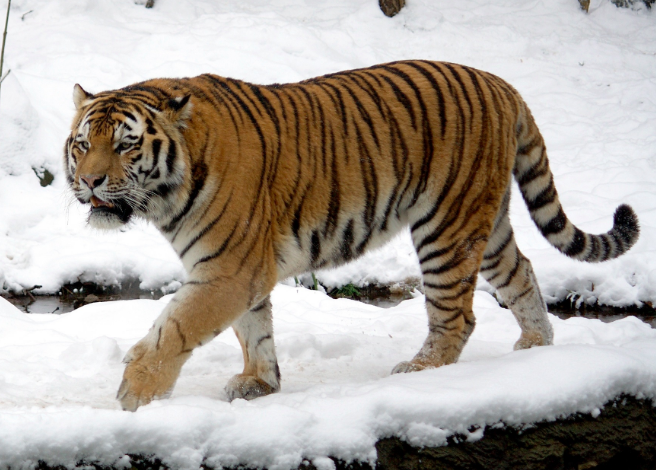Why You Shouldn’t Tick off a Tiger


tk
In the animated version of the classic children’s stories about Winnie the Pooh, the protagonist — that’s Pooh, to be clear — was a bear. And he loved honey, or “hunny” (with the second “n” backward) as he wrote on his honey pot. To get the sweet, sweet goop, Pooh had a fool-proof plan: he’d approach beehives while disguised as a little black raincloud. The hope was that the bees would may the cloud no mind and, given this inattention, Pooh would reach his little bear arm out from behind his disguise and steal himself some honey. By the time the bees noticed, it was too late. Pooh had absconded with the snack, and the bees — well, they’re insects, and it’s not like they can plot a revenge strategy or anything like that.
Tigers, however, aren’t insects. And it turns out, they can retain grudges for hours, maybe even days. And a guy named Vladimir Markov learned that the hard way.
The story is recounted in the 2010 book “A True Story of Vengeance and Survival” by John Vaillant which focuses on the Siberian tiger, an endangered species native to the Russian wilderness. In general, these tigers don’t bother humans and as a result, tiger attacks are rather rare. But there are exceptions. The most common being when a tiger gets so hungry that it simply has no other choice. When that happens, there are guys like Yuri Trush.
As of 1997, Trush was the head of a local anti-poaching unit, funded by the Russian government to stop the illegal hunting of the Siberian tiger. As the Denver Post reported, “usually, the squad spent its time checking hunters’ documents, raiding hunting cabins and performing sting operations along the Chinese border, where body parts of slaughtered wild animals, especially Siberian tigers, are sold as elixirs.” This time was different: the hunter Trush was there to investigate was a Markov — and Markov was dead. And that’s an understatement. When Trush arrived on the scene, he found very little of Markov left. As summarized by the Washington Post, Trush came across some ripped through clothes, a hand, and “bones protruding from the tops of thin rubber boots” — and not much else.
Trush, who over the course of his career, had seen the aftermath of many tiger attacks, immediately noticed that something was different here. In most cases — and again, Siberian tigers rarely attack humans in the first place — the corpse is mostly intact, except for the parts that the tiger ate. In this case, not only had a tiger attacked Markov, but it had defiled his body well beyond what a tiger would do if the beast were merely hungry. Trush investigated further, and it turned out that the mauling of Markov wasn’t the first time the tiger and his victim met. Markov, at least a day or two prior to this ill-fated encounter with the tiger in question, shot the beast, wounding it. And then, Markov took the tiger’s food. The tiger had already killed itself a meal and Markov took some of it for himself, leaving the wounded tiger behind.
The tiger apparently didn’t take kindly to being shot and having some of its food stolen. Per NPR, “the tiger staked out Markov’s cabin, systematically destroyed anything that had Markov’s scent on it, and then waited by the front door for Markov to come home.” The wait wasn’t short, either; the tiger camped out for least 12 hours and as many as 48. But eventually, Markov arrived, and the tiger got its brutal revenge.
From the Archives: Leopards and Tigers and Corbetts: The story of a prolific hunter of prolific hunters.
